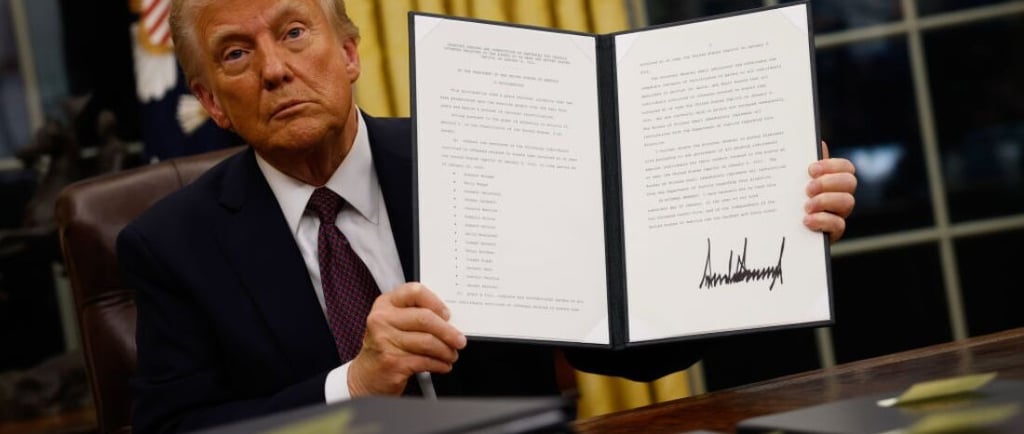United States: The End of DEI and Affirmative Action
Diversity, Equity, and Inclusion (DEI) has shaped corporate and institutional policies for decades, with its origins in the Civil Rights Movement of the 1960s. However, in recent years, particularly following legal challenges and political shifts, DEI initiatives have come under intense scrutiny. As leading corporations and universities dismantle their DEI programmes, is the United States witnessing the decline of one of the most influential workplace policies of the 21st century?
UNITED STATES
Taissiya Sheguy
2/3/20253 min read


Diversity, Equity, and Inclusion (DEI) initiatives have shaped American workplaces, universities, and institutions for decades. What began as a response to the civil rights movement grew into a far-reaching effort to ensure representation and fairness across various sectors. However, recent years have witnessed a growing resistance, with companies, universities, and government agencies rolling back their DEI policies. While some argue that this shift represents a return to merit-based systems, others see it as a step backward in the fight for equity.
The roots of DEI lie in the affirmative action policies introduced by President John F. Kennedy in 1961 and later expanded by President Lyndon B. Johnson. These policies initially aimed to prevent discrimination and create opportunities for historically marginalised groups. Over time, the concept evolved beyond race and gender to include socioeconomic status, disability, and sexual identity.
Momentum for DEI accelerated after the death of George Floyd in 2020, when corporations and institutions rapidly adopted policies to signal their commitment to racial justice. Businesses launched diversity training programmes, reformed hiring practices, and implemented supplier diversity efforts. In many cases, these initiatives were framed as moral imperatives, with executives pledging long-term support for diversity efforts. However, enthusiasm for DEI has since waned, with many of the same organisations now dismantling their programs.
The legal landscape has played a key role in this reversal. In 2023, the Supreme Court ruled against Harvard University in a case brought by the advocacy group Students for Fair Admissions. The ruling declared race-conscious admissions unconstitutional, raising alarms about the legality of corporate DEI initiatives. Many companies have since reassessed their policies, wary of potential lawsuits that could arise from hiring or promotion practices that prioritise diversity.
The backlash against DEI has also been shaped by broader cultural and political forces. Critics argue that these initiatives foster "positive discrimination," privileging certain groups at the expense of others. The term "woke culture" has been used to describe what some view as an overcorrection, leading to consumer boycotts and protests against companies that openly support DEI policies. The political climate has further accelerated the decline of DEI, particularly with the re-election of Donald Trump, who has been a vocal opponent of diversity policies. His administration has moved to dismantle DEI initiatives in government agencies, setting a precedent that private companies are now following.
Meta, the parent company of Facebook, is among the corporations that have significantly altered their approach. In January 2025, its Vice President of Human Resources, Janelle Gale, announced a shift in policy, citing changes in the legal and political environment. The company has since disbanded its DEI team, abandoned equity and inclusion programmes, and eliminated supplier diversity initiatives. Instead, it has opted for policies that claim to promote fairness without explicit diversity considerations. Other major corporations, including Google, Amazon, and McDonald's, have made similar moves, quietly retreating from their post-2020 commitments.
Despite this rollback, concerns remain about the long-term consequences. Studies have consistently shown that companies with diverse leadership teams perform better financially. Research by Boston Consulting Group found that businesses with higher levels of diversity generate 19% more revenue through innovation. The reduction of DEI initiatives could stifle creativity, limit diverse talent recruitment, and create reputational risks for companies facing backlash from socially conscious consumers.
The retreat from DEI also threatens to undermine economic opportunities for minority-owned businesses that have relied on supplier diversity programmes. With fewer corporate partnerships available, many of these businesses may struggle to maintain financial stability. At the same time, some argue that a shift away from DEI could lead to a more meritocratic system, reducing accusations of tokenism and ensuring that opportunities are awarded based purely on qualifications.
The debate over DEI is far from settled, and its decline raises pressing questions about the future of workplace and educational equity in the United States. While some view this as a necessary recalibration, others see it as a retreat from decades of hard-won progress. Will this shift ultimately lead to fairer outcomes, or will it deepen existing disparities in American society?


